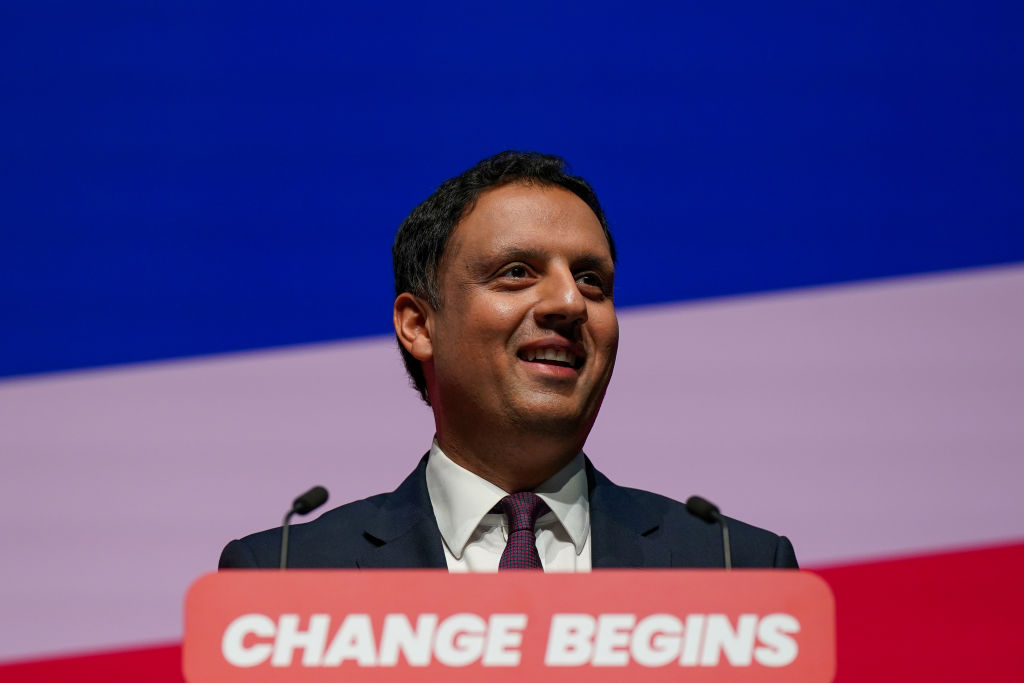At long last, Scottish Labour has clearly and decisively set out its position on gender self-identification. Party leader Anas Sarwar and his deputy Jackie Baillie have now robustly stated the case that Scottish Labour supports single-sex spaces based on biological sex. Good, clear, precise messaging of the type entirely absent from the SNP leadership – and long overdue.
Yet that clatter you hear is the sound of jaws dropping violently at the audacity. Shock at this astonishing volte face by Sarwar will be most keenly felt by two of his MSPs, Claire Baker and Carol Mochan, who were forced to resign their frontbench posts in the Scottish parliament when they declined to support the Gender Recognition Reform Bill.
Sarwar, in an interview with the Holyrood Sources podcast, has said that, knowing what he now knows, his party would not have supported changes to legislation designed to allow people who identify as trans to self-declare their gender. What on earth might Sarwar know now that was not available to him in 2022 when the Scottish parliament voted on the bill? Organised groups of expert women clearly signposted the pitfalls of the legislation.
Since the passing – and almost immediate repealing – of the bill, Scotland’s legislators have had to deal with stark issue of seeing a rapist housed in a women’s prison. In 2023, Nicola Sturgeon refused to call Isla Bryson, who raped two women while still identifying as Adam Graham, a man. Instead, despite increasing media and public pressure, she insisted on referring to Bryson as ‘a rapist’.
Now NHS Fife and Dr Beth Upton, a transgender doctor, have been taken to tribunal by nurse Sandie Peggie. The health board supported Upton to use the female changing rooms in the hospital where they worked. Once again, the SNP is wrangling with the fallout from an employment tribunal that is highlighting the institutional capture of Scotland’s civic organisations and the unutterable guddle caused by the lack of political leadership on the issue of sex and gender.
The most shocking revelation from Sarwar and Baillie’s podcast interview was that the Scottish Labour leader – who believes himself a sure bet to be the country’s next first minister, in spite of recent polling – seems not to understand how legislation is drafted. Sarwar detailed his ‘deep regret’ at not pushing harder for amendments to the gender bill that his party had tabled. One wonders if, when pushed, Sarwar might be able to detail exactly what those amendments were.
Only the most terrible cynic would suggest that Sarwar is suddenly seeing the issue of gender self-ID with new eyes in light of his plummeting polling figures.
Certainly, the rest of the interview gives no succour. The party, he went on, ‘took at face value’ the Scottish government’s assurances when ‘they said that nothing in the legislation would negatively interact with the Equality Act’. But it is absolutely the duty of the opposition to scrutinise draft legislation. Sarwar’s is an astonishing admission and prompts the question: what else has Scottish Labour ‘taken at face value’ without serious consideration? The bill passed with 86 votes in favour versus 39 against – yet the nationalists’ attempt to reform the law was blocked by then-Scotland Secretary Alister Jack, on the grounds that it negatively impacted on the UK-wide Equality Act.
The Labour leader’s latest comment on its gender-ID stance has finally brought itself in line with the UK party. In its general election manifesto, Sir Keir Starmer’s Labour was clear it would not de-medicalise the process of acquiring a gender recognition certificate and would keep the need for diagnosis of gender dysphoria from a specialist doctor. Scottish Labour’s manifesto, however, made no mention of the need for a medical diagnosis to change gender and in 2023, its social justice spokesperson insisted it continued to support ‘de-medicalisation’ of the process.
So what has prompted this belated change of heart? Last week made clear that the majority of the Scottish public supports Sandie Peggie, while YouGov polling revealed a growing majority are sceptical of trans activist demands. There is a straightforward understanding that a woman should not be compelled to share intimate spaces with a person of the opposite sex should she not want to. That should not be controversial.
It has also been clear in recent polling that the majority of the Scottish electorate does not support Scottish Labour. Only the most terrible cynic would suggest that Sarwar is suddenly seeing the issue of gender self-identification with new eyes in light of his plummeting polling figures. Yet with polling falling and Sarwar’s path to Bute House seeming ever more distant, the Scottish Labour leader’s sudden support for women’s sex-based rights appears as a shallow attempt to flow with the turning of the tide on the issue.
The Supreme Court is due to rule on whether a gender recognition certificate alters a person’s sex for the purposes of the Equality Act 2010. If Scottish Labour throws its weight behind enshrining protections for biological sex, it will go some way towards reparations for all the women wronged by the party’s wrongheadedness on this issue.







Comments